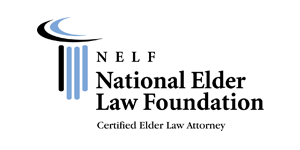HOW CAN WE HELP?
PRACTICE AREAS
AWARDS & ASSOCIATIONS
FOLLOW US
Estate Planning for the New Normal
Estate planning should be geared towards a person’s particular family situation. In the last several decades family situations have become more complex. In order to adequately address the needs of “today’s family,” estate planning must also become more complex.
The “traditional family” is defined as children with two parents both in their first marriage. In 1960, 73% of children lived in a traditional family environment. In 2014, the number of children living in the traditional family environment dropped to 46%. Many of these new households are blended families, single parents, co-habitating parents, same-sex couples or even grandparents. Blended families (families with step-children) are becoming more common, as today one-third of all marriages create a blended family.
This article is not meant to address the social implications of this demographic change, but rather to address the implications of these changes on standard estate planning. The bottom-line is that the simple “I love you” Will (leaving all assets to a surviving spouse, then to kids) does not work for most families. Documents in these situations may require more specificity and sophistication. There are several additional matters for blended families to consider, including:
1. Personal property – Items of personal property, such as clothing, books, jewelry, guns, pictures and things of that nature often have significant sentimental value. A parent may want to leave some of these items to his or her children, rather than leaving all personal property to a surviving spouse. Children often feel hurt and upset if someone who is not their parent now owns the “family property” and decides what to give to them, if anything.
2. Assets – When considering leaving assets at death, it is important to think about protecting the interests of one’s children in a new marriage. For example, a simple Will leaving everything to a second spouse does not prevent that spouse from later disinheriting the deceased spouse’s children. The surviving spouse may remarry and leave those assets to the new family.
There are several ways to ensure the children’s interests are protected. First, an individual may want to leave some assets to their children immediately upon death. If the surviving spouse will need the assets for his or her care, perhaps a marital trust or a post-nuptial agreement will suffice to protect the assets for the deceased spouse’s children.
3. Health Care Decisions – It is important to designate someone to make health care decisions for you if you cannot make them for yourself. Typically a spouse will serve in this role. However, where an individual may have adult children from a prior marriage, he or she may wish to name both a spouse and their children to serve together. If naming only a spouse, we recommend including language asking the children to respect the spouse’s decisions.
4. Burial Wishes – Burial decisions can also be emotional and a source of contention. The law provides that a spouse will make all burial decisions. It will be important to ensure that a person expresses their burial wishes (in writing and verbally) so that any decision of the surviving spouse would not be challenged by the deceased person’s children.
We would be happy to help with your estate planning. Please send us an email or give us a call at (205) 802-0696.
The post Estate Planning for the New Normal appeared first on Carney Dye, LLC.




